Campus News
UCSC Humanities Division welcomes new faculty members
The University of California, Santa Cruz Humanities Division is proud to announce the recent hires of eight outstanding new faculty members whose disciplines range from Literature and Writing to Linguistics and African history.
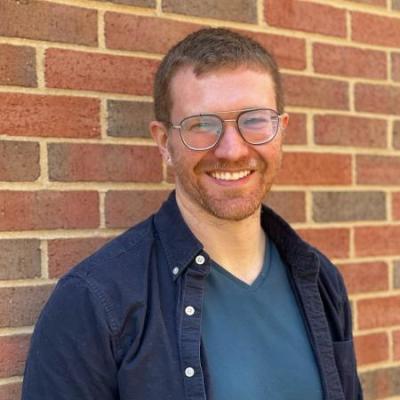
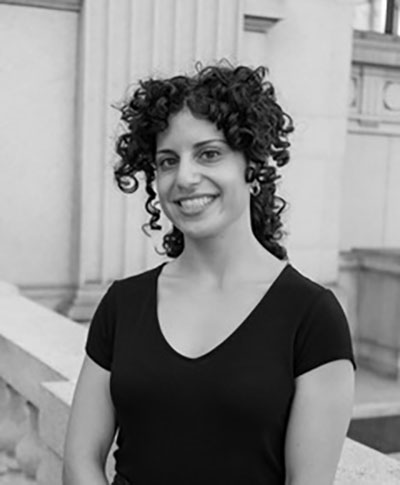

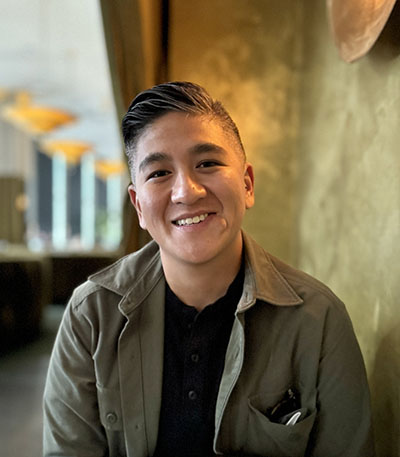
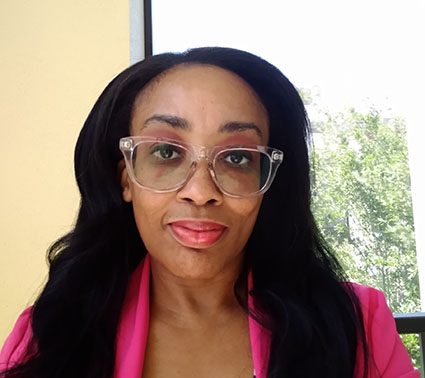
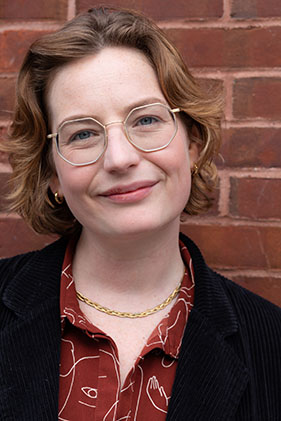
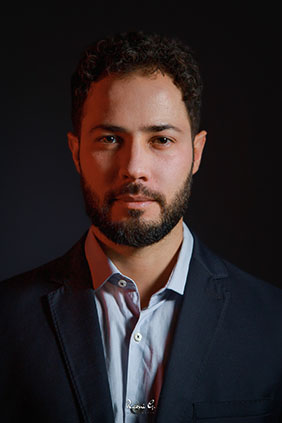

The University of California, Santa Cruz Humanities Division is proud to announce the recent hires of eight outstanding new faculty members whose disciplines range from Literature and Writing to Linguistics and African history.
“These world-class scholars and teachers are at the forefront of humanistic research, exemplifying the Humanities Division’s focus on cross-disciplinary approaches to the most important issues of our time,” said Humanities Dean Jasmine Alinder. “These are thinkers whose work builds bridges between the Humanities and other disciplines, from politics and the arts to environmental studies and neuroscience.”
Here are the new faculty members:
Dustin A. Chacón, Assistant Professor, Linguistics
Dustin A. Chacón’s research investigates the neural bases of language comprehension, examining questions such as: how does the brain process, respond to, and represent language? How does the brain accommodate the specific features and grammatical rules of different languages? How do the brain’s language areas coordinate with sensory areas, such as vision (reading, signing) and hearing (speech)? Chacón’s work draws from formal linguistic theory, and neuroimaging methods such as electroencephalography and magnetoencephalography, with special focus on the languages of South Asia (Hindi/Urdu, Bengali, Nepali). Chacón joins UC Santa Cruz from the University of Georgia, where he served as an Assistant Professor of Linguistics (2022–2024). He has also worked as a research scientist at the Neuroscience of Language Lab at NYU Abu Dhabi (2019–2022), assistant professor of Linguistics at University of Minnesota (2016–2019) and Faculty Fellow at NYU (2015–2016).
Hannah Rachel Cole, Assistant Professor, Literature
Hannah Rachel Cole is a scholar of environmental humanities, Caribbean literature, and, more broadly, postcolonial studies. She is currently working on a book project that examines “weedy” plants in Caribbean literature, placing these species in the context of regional plantation history. The project moves comparatively between the Anglophone, Hispanophone, and Francophone traditions. Cole’s dissertation, “A Thorny Way of Thinking: Botanical Afterlives of Caribbean Plantation Slavery,” draws attention to literary representations of weeds that grow at the margins of monoculture fields. Her writing has been published in Latin American Literary Review and the Aldus Journal of Translation. Her digital humanities project, Botanical Imaginaries, offers interactive maps of plant migration in three Caribbean texts. Before joining UC Santa Cruz, she taught in Harvard University’s History & Literature program and served as a Postdoctoral Associate at Yale University’s Center for the Study of Race, Indigeneity, and Transnational Migration and the Yale Environmental Humanities Program. She received her Ph.D. in Comparative Literature from Cornell University.
Quin’Nita Cobbins-Modica, Assistant Professor, History
Quin’Nita Cobbins-Modica is an historian of African American history in the American West whose research and writing focus on Black women’s political activism and leadership. Her forthcoming manuscript explores the long history of Black women’s organizing power and community-building efforts in Seattle, providing significant insights into the unique conditions that shaped their activism and their influential role as political actors in the western Black freedom struggle. For over a decade, Cobbins-Modica has been actively engaged in the digital humanities, contributing to several online digital history projects and repositories. Before joining UC Santa Cruz, Quin’Nita Cobbins-Modica was visiting assistant professor of African American History at the University of Oregon (2020-2021) and Assistant Professor of History at Seattle Pacific University (2021-2022). She received her Ph.D from the University of Washington with a Master’s in History from the University of Georgia and a Bachelor’s in History from Fisk University.
Josen Masangkay Diaz, Associate Professor, Critical Race and Ethnic Studies
Josen Diaz’s work addresses race, gender, colonialism, and authoritarianism, race and subjectivity; gender and sexuality studies; transpacific studies; Asian American studies; and Philippine and Filipinx studies. Her book, Postcolonial Configurations: Dictatorship, the Racial Cold War, and Filipino America (Duke University Press, 2023), analyzes the formation of Filipino American subjectivity through a study of U.S.-Philippine cold war politics. Her writing appears in Social Text, Critical Ethnic Studies Journal, Signs, and Journal of Asian American Studies, among others. She serves as a section editor for Lateral, editorial board member for the Asian Journal of Women’s Studies, Critical Ethnic Studies Journal, and Feminist Pedagogy Journal, and board member for the Association for Asian American Studies. She received her Ph.D. in Literature from the University of California, San Diego, and was previously a faculty member at the University of San Diego and a fellow with the Asian American Studies Center at the University of California, Los Angeles. Diaz was also a visiting fellow at the Institute of American Culture at UCLA and a visiting scholar at the Center for Philippine Studies, University of Hawai’i, Mānoa.
Jamila Kareem, Associate Teaching Professor, Writing Program
Jamila M. Kareem is an award-winning scholar in writing studies. A National Council of Teachers of English Scholars for the Dream recipient, Kareem’s scholarship has appeared in the peer-reviewed journals Teaching English in the Two-Year College, Literacy in Composition Studies, Journal of College Literacy and Learning, JAC: A Journal of Rhetoric, Culture, and Politics, and numerous edited collections in her research area of critical race theory and racial hierarchies in writing education. She is currently co-editor on the 20th anniversary edition of What is “College-Level” Writing?, Teaching Composition in the Two-Year College vol. 2, and Macmillan Learning’s EasyWriter composition handbook. Before coming to UC Santa Cruz, Kareem was Associate Professor of Writing and Rhetoric at the University of Central Florida. She earned her Ph.D. in Rhetoric and Composition at the University of Louisville.
Lauren Lyons, Assistant Professor, Philosophy
Lauren Lyons works on ethics, social and political philosophy, and philosophy of law. Her research focuses on the criminal legal system, with projects on prison abolition, the ethics of policing, and carceral feminism. She also has interests in the expanding use of technologies in policing and punishment, specifically the ethics of police surveillance and electronic monitoring. Some courses she is excited to teach include introductory ethics, philosophy of law, the ethics of technology, and political philosophy. At UC Santa Cruz, she will be teaching in the Humanizing Technology certification program, which surveys a range of pressing issues related to emerging technologies. Before coming to UC Santa Cruz, Lyons lived in Brooklyn while completing her PhD at Rutgers, New Brunswick. Her dissertation was entitled “Injustice and the Criminal Law: Defending Radical Solutions.”
Thiago H. Mota, Assistant Professor, History
During and after his doctoral studies, Thiago Mota conducted research in Brazil, France, Gambia, Germany, Guinea-Bissau, Mozambique, Portugal, and Senegal, studying the early process of the social spreading of Islam in West Africa – from the 15th century to the early 19th century and its impact over the Atlantic World. He authored the book Portugueses e Muçulmanos na Senegâmbia: História e Representações do Islã na África (c.1570-1625) and his forthcoming monograph is tentatively titled Global Islam from Below: Africa and Africans in the Making of a Muslim Atlantic. After completing his PhD, Mota was a postdoctoral fellow at the University of São Paulo (Brazil), a Fulbright Visiting Scholar at the University of Pennsylvania (USA), and a Marie-Curie Visiting Scholar at the Cheikh Anta Diop University (Senegal). Before joining UC Santa Cruz, Mota taught courses on African History and Methodologies for History Education at the Federal University of Viçosa (Brazil, 2018-2024.) Fully trained in the Global South, Mota earned a PhD in Social History from the Federal University of Minas Gerais, Brazil.
M. Ty, Assistant Professor, Critical Race and Ethnic Studies
As a cultural theorist, M. Ty writes about the fringes and fissures of critical theory; experimental poetics of color, particularly in their visionary refusal of the brutalities of coercive legibility; the afterlives of scientific racism; the disaster of border regimes and their carceral supports; and contemporary art that comes out of queer and trans practices of survival. Ty’s book in progress, Beyond Category: Toward a Countercolonial Poetics of Environment, studies the colonial inheritance of contemporary environmental knowledge and gathers resources for counter-colonial ways of making sense with our socio-ecological surrounds. Ty earned a Ph.D. in English at UC Berkeley, with a designated emphasis in Critical Theory. Before coming to UC Santa Cruz, Ty was Assistant Professor of English at the University of Wisconsin, Madison. Ty was also a Fellow at the Institute for Cultural Inquiry in Berlin and at the Akademie Schloss Solitude.